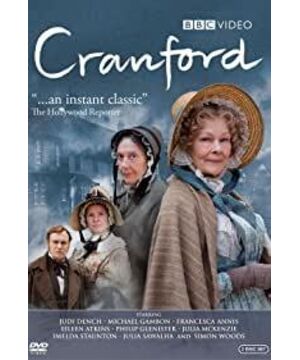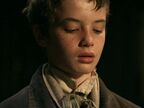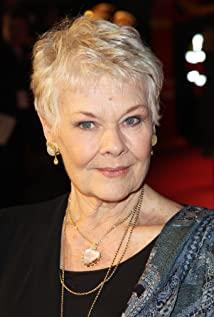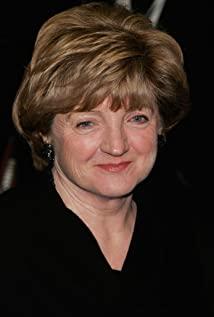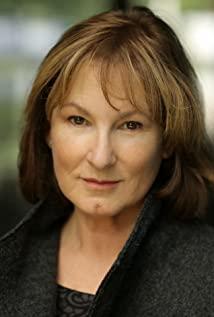Cranford is a novel by Mrs Elisabeth Gaskell (South and North, Mary Barton). The content is actually very simple. The details of small town life more than a hundred years ago are like the typical structure of the English countryside in the Victorian era. The protagonists of the town are old ladies + priest + doctor. Was surprised to hear that Cranford was adapted into a BBC classic mini-series. Because of this kind of story, there is no grand plot, soul-stirring romance, it is hard to imagine that any story has to be sprinkled with three pounds of blood, and the main tone of sex, money, and blood is sung. Now, there are still people who are willing to watch it. The social etiquette of these old ladies wearing ancient lace straw hats two centuries ago, listen to their short gossip?
It was June 1842 when the curtain was drawn, and two sisters from Cranford, Miss Jenkyns and Miss Matty, were cleaning their dusty guest room because Mary Smith, the daughter of an old friend, couldn't stand someone nearly her own age. Stepmother, wrote to live with them. In Cranford Town, Miss Jenkyns is a pivotal figure, with a strong personality and her own opinion on everything, a guide to life for her sister Miss matty, and a spiritual leader in the social circle of the town's old lady . In addition to them, Miss Pole is the source of gossip in the small town. This young lady is energetic, curious about everything, and has the same professionalism as the dreadlocks of our time. They retain their social habits that have not changed over the years. They can only visit each other in the afternoon, and the courtesy visit cannot exceed 15 minutes. Even eating juicy oranges at the table has become a small enemy to challenge etiquette. The regular Miss Jenkyns can only suggest that everyone bring oranges back to their rooms. In such a closed and rigid small world, only strangers can startle a bunch of gulls and herons.
Captaine Brown, a retired colonel, brought a pair of daughters to live next door to Miss Jenkyns and Miss matty. The youngest daughter died shortly after, and the eldest daughter Jessie refused to leave her old father and refused marriage proposals three times. Her loneliness made Mary Smith especially worried. Help her secretly. The town doctor has recruited a new assistant, and Dr Harrison is a bachelor. Caroline, who is eager to marry, is the younger sister of another pair of old ladies, and has since begun a half-truth life as a patient, in order to get the doctor's attention and a chance to be alone. But the doctor fell in love at first sight with Sophy, the daughter of a small town priest. Soon, St. Valentine's Day came, (I didn't expect Valentine's Day more than a hundred years ago, and it became popular to send cards and flowers to each other), cards shuttled around the small town, plus Miss Pole's amazing imagination and The ability to communicate and lead to intricate misunderstandings that make people laugh.
Behind these main lines, death goes hand in hand with laughter, Miss jakens died suddenly after a grand garden tea party, Miss matty's suitor when she was young reappears, good luck makes people, when she thinks happiness will come again, but the other party is traveling Died later. In almost every segmented episode, a character dies of illness.
In such a small world, they are all so ordinary people, happiness and sadness are so simple and innocent, they sing unsatisfactory songs, a poem recited by the fire, a bunch of small flowers, a picture they once loved The extraordinary silhouettes are the purest joy of their peaceful days. But after their rigid social etiquette, the friendship is so deep-rooted, Miss matty almost went downhill because of the bank failure, but these old ladies in the town who are not rich at all secretly gathered, made a written contract, and Miss matty share their own meager earnings. Mary visits like little Sherlock Holmes for the love of jessie and sophy. All of these, let us forgive and accept their rigidity, and their trivial gossip has become so warm. Jane Austen once said that her work is like a two-inch ivory sculpture, and the whole world can be seen in the details. I think that's the best description of the town of Cranford. Bits of Ivory.
This Cranford is actually the simple and happy world that we ourselves have lost, and when I think about it, it is our own childhood.
In fact, I am also a small town girl. The small town on the east coast was not like Cranford Town, with innocent days and calm scratches. On summer nights, we enjoy the shade on the small bridge of bluestone slabs, and in spring we run on fields full of alfalfa. Dried wheat butter on the Dragon Boat Festival, conch shells after the tide in June, raw bean curd walking on the alleys, knocking bangs on winter nights, and the long sound of "be careful with the candles". Grandma's hand walks the streets and alleys and chats with the old ladies, moss grows on the blue tiles, long shadows fall, and mottled jewelry on their hands. At that time, I walked all the way from that long street to the end, and all the way I knew the neighbors, and I could say hello all the way to the end. The food stall, the rickshaw driver, the clothes shop, and the shoe repairer are all familiar to you. When you meet and ask, you are a girl from the Wang family. How good is your grandfather and how is your grandmother.
Now, naturally everything is obliterated.
The people of Cranford were so resistant to the railroad, they said it was the end of Cranford. So resisted, it still came irresistibly. Imaginative people say that represents limitless opportunity, and we finally have a modern age. But we know that such a peaceful life will never come back. The town of Cranford on the east coast is also gone forever, submerged in the tide of factories, manufacturing, real estate, and even shampoo shops.
As a loyal BBC classical drama fan, I have watched almost all the classical dramas it has produced in the past ten years. Cranford Town has surprised and delighted me more than almost any Jane Austen, George Eliot, or Dickens adaptation. This is something I didn't expect myself. Judi Dench's performance of Miss Matty is so peaceful and innocent, yet so moving, I always thought she could only play in the role of agressif, I was wrong. The Miss Pole given by Imelda Staunt has an amazing comedy effect, but at the same time it makes people feel very heartfelt and moving. Although there are only two episodes of Eileen Atkins, Miss Jenkyns, a rigid but tender-hearted Miss Jenkyns, is unforgettable. Michael Gambon, Greg Wise. . . . . I think only the BBC can dispatch such a cast and human and material resources to adapt such a classic. If you are a fan of British dramas or British movies, the characters here from supporting roles to leading roles will all be actors we know and love. British actors will always have the temperament and talent that others do not have, which is proved once again here. I love the BBC.
View more about Cranford reviews


